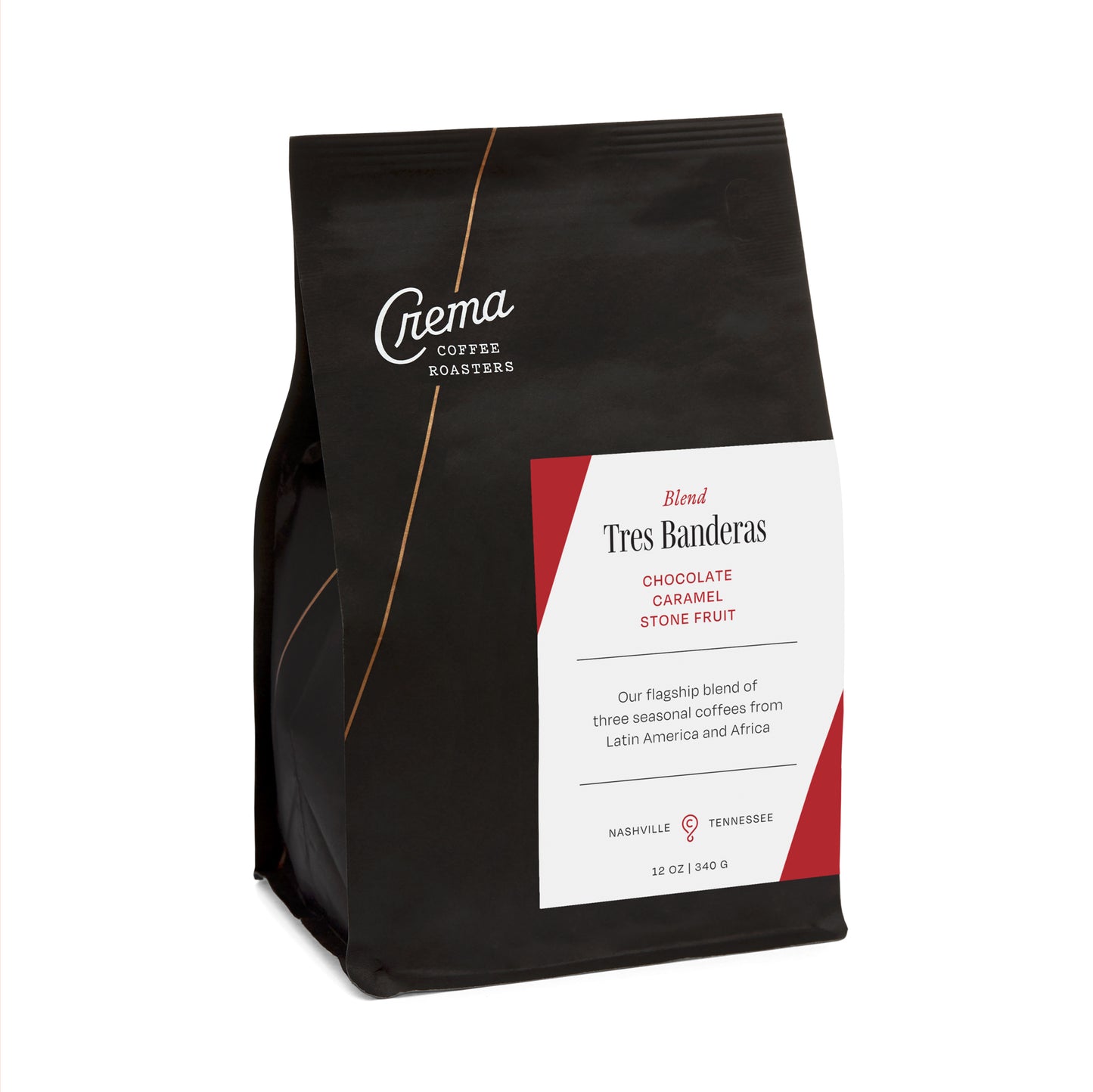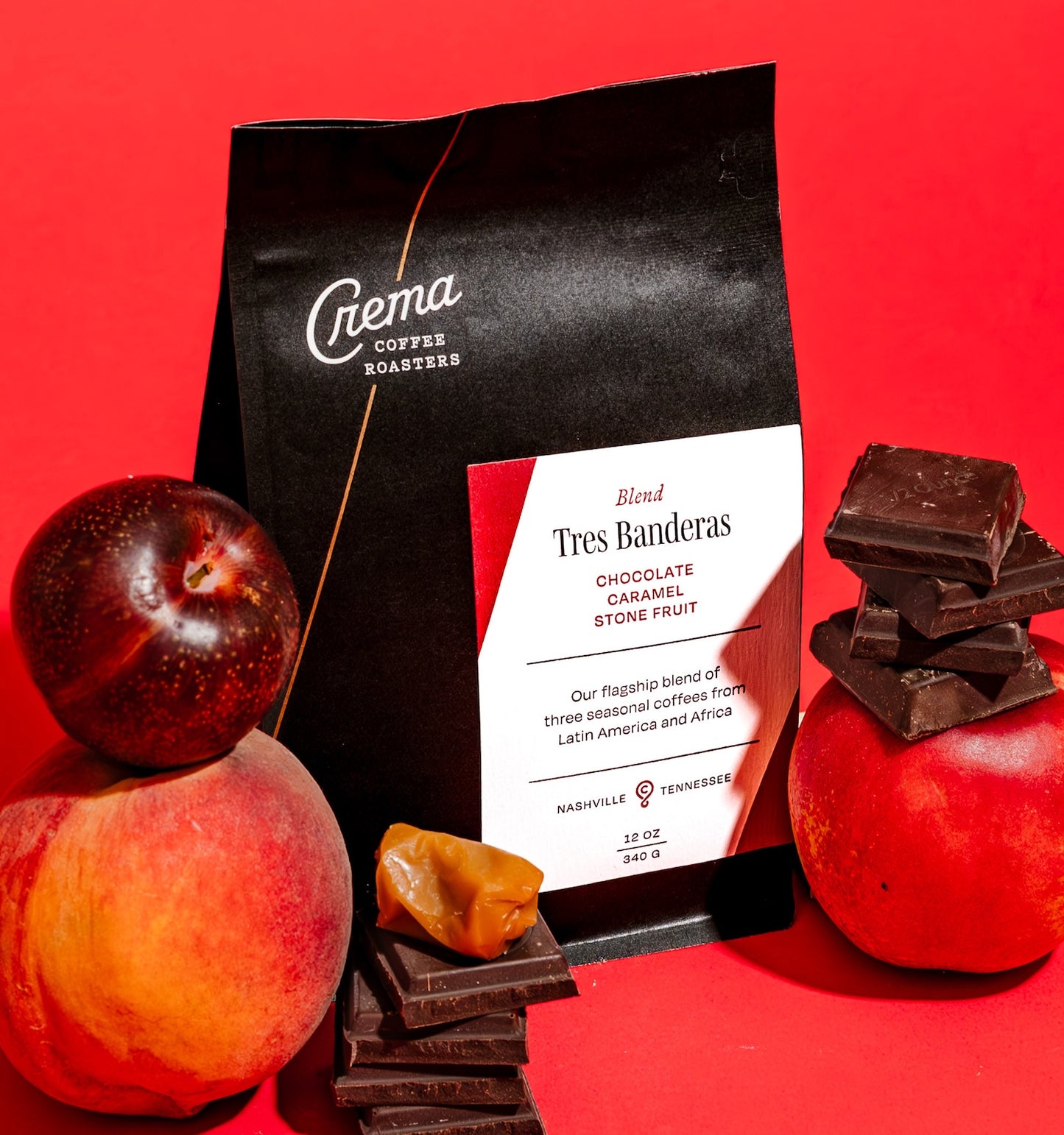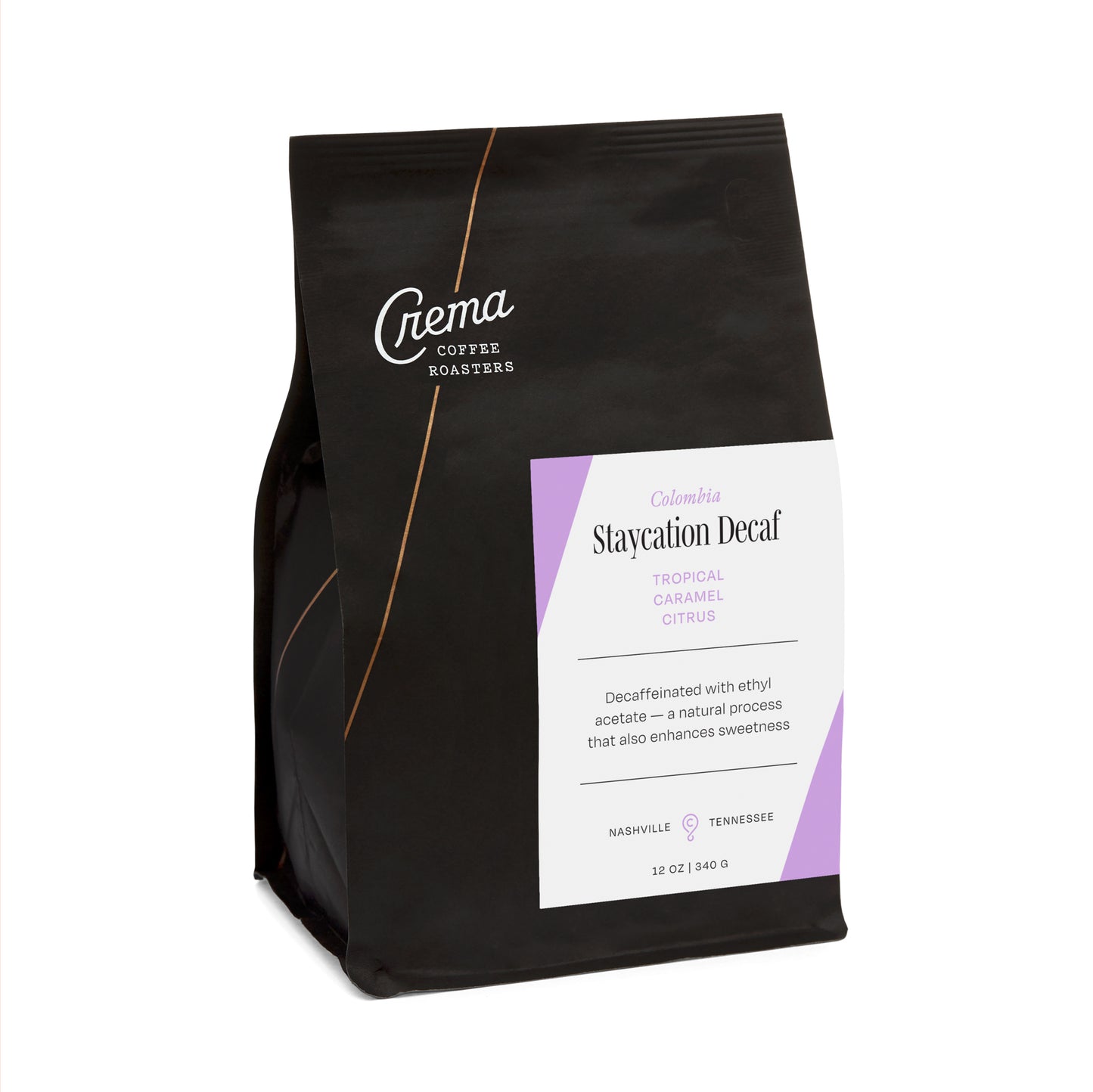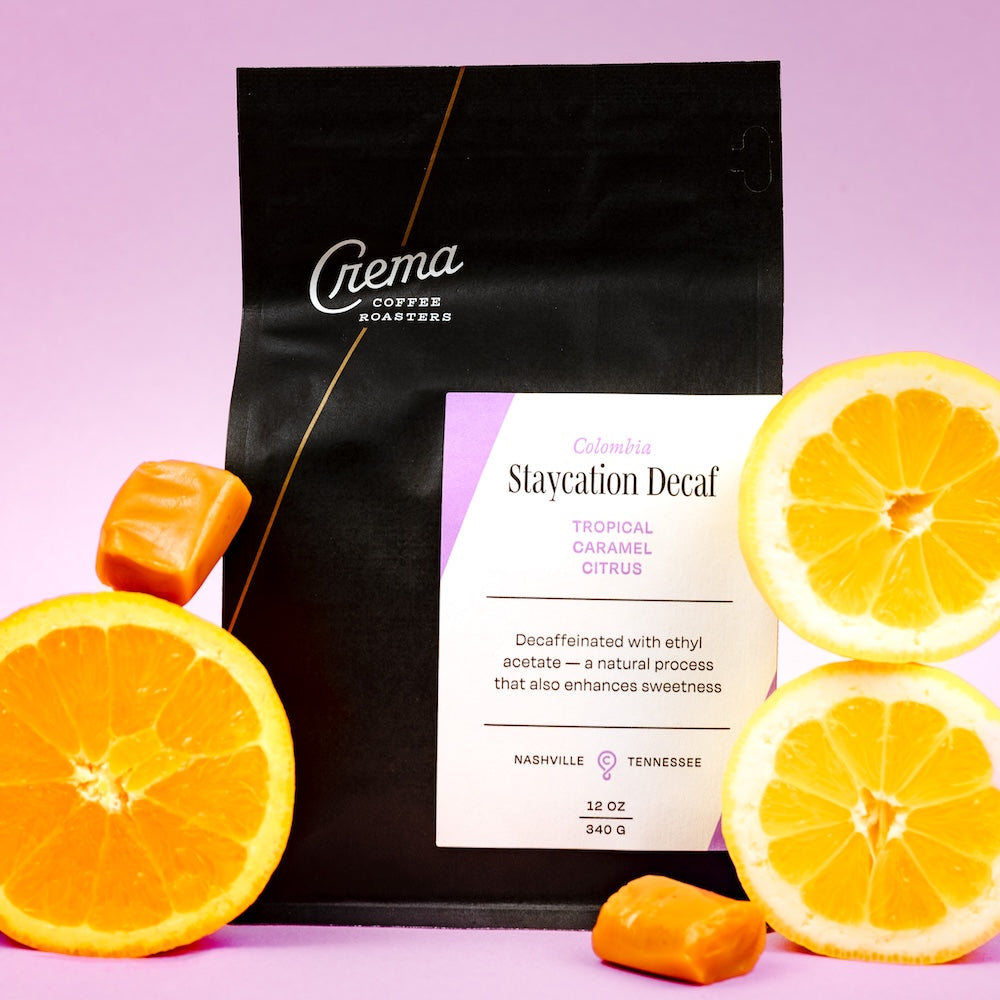WHAT IS SUSTAINABILITY?
Sustainability can mean many different things. The Oxford Dictionary says it’s, “the ability to be maintained at a certain rate or level.” Our approach to the sustainability topic has evolved over the years through reading Wendell Berry, and other books like Cradle to Cradle and Inquiries into the Nature of Slow Money, and learning from coffee producers and friends in our community.
We want every aspect of Crema to continually thrive — for us, that is made possible by establishing a strong sense of economic vitality, environmental commitment, and social responsibility.
WHAT DOES SUSTAINABILITY LOOK LIKE FOR US?
ECONOMIC VITALITY
Money is a resource that we strive to use with intelligence and intention. We are wholly self-capitalized so we can control how every dollar is spent. We aim for slow, steady growth so that we can use our healthy bottom line to invest in our employees and our community.
ENVIRONMENTAL COMMITMENT
We are a zero waste* and carbon neutral company. We’ve worked from the beginning to be resourceful and conscientious — our original bar was built from reclaimed lumber, we assembled bamboo countertops, doors, and other supplies from our local Habitat for Humanity ReStore. Our process of becoming zero waste has been gradual and we are continually finding new ways to reduce our negative impact.
Here are some things we’ve adopted to help make a positive impact:
Use with Compost Nashville and Earth Savers to responsibly dispose of our waste
Install water flow restrictors in all of our faucets
Use energy efficient light bulbs and heating and cooling systems
Purchase entirely compostable cups, lids, straws and plasticware
Offer stainless steel straws for in house drinks
Offer a 25 cent discount to customers who bring in reusable cups
Use an electric vehicle for all deliveries.
Offer local wholesale partners a bagless delivery option
Offset our carbon footprint through Cool Effect
Seek out vendors who are local and/or have similar values
Purchase from coffee farmers and producers who keep sustainability in mind
Pay those coffee producers what is fair so that they are able to continue making their own communities better.

SOCIAL RESPONSIBILITY
Crema is built on the belief that good business begins with treating your team well. Happy healthy people are able to not only create genuinely hospitable experiences for our guests, they are able to live their lives fully and bring their unique goodness to their communities.
To that end, we pay fairly and above market average and, in 2019, reached a long anticipated goal when we began our employee profit share. It’s not about money, it’s about empowering people with opportunities to do what they love and do best. And, we have a robust Well-Being plan that covers everything from weekly bread and coffee to an annual stipend for personal learning (ceramics, piloting, biodynamic farming, cooking, writing, etc.)
Happy healthy companies are also made possible by their community. We seek to be a positive and engaged presence in the community we love. This for us means partnering with local businesses to supply our bread, cheese, chocolate, and milk, supporting local artists, and regularly giving time and resources to organizations such as Safe Haven, The Contributor, Gideon’s Army, and Second Harvest (in addition to a handful of organizations chosen by our staff.)
We are proud of the sustainability foundations we’ve laid and the work we continue to do ensure that our team, our planet and our community (near and far) are able to thrive for a good, long time. And we are thankful to all of you for being part of our community — for helping us be the kind of company we want to be.






* The term "zero waste" has many meanings, it's a philosophy and a business accreditation for others. Typically a zero waste business is defined as one that diverts 90% or more of all trash that could be considered waste from entering a landfill. We use the term loosely to define our goal of taking small steps in a better direction. We estimate we're diverting 97% of all our waste (the remaining 3% is non-recyclable or non-compostable waste.) sustainability sustainability sustainability sustainability sustainability sustainability sustainability sustainability sustainability
← Older post Newer post →








